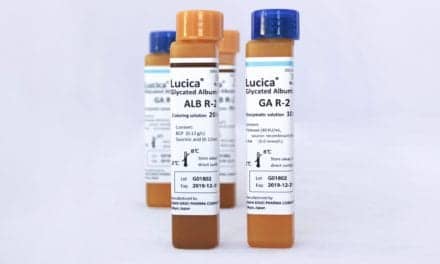IdentifySensors Biologics has completed preliminary clinical tests of positive COVID-19 samples using new graphene digital sensors, which demonstrate level-of-detection capabilities four times more sensitive than PCR tests.
The graphene digital sensors were fabricated and tested in batches of 20 using heat-inactivated saliva samples as required by FDA Emergency Use Authorization standards. The saliva samples were collected from COVID-positive patients. Viral concentrations of the samples were quantified using RT-PCR. The samples were then diluted to the preliminary limit of detection of 200 copies per milliliter and retested using Check4. Approximately 98% of the tests showed accurate rapid results from verified samples.
The research demonstrates that infections, such as COVID, RSV and influenza, can soon be diagnosed well before patients develop symptoms, says IdentifySensors Biologics Cofounder and CEO Gregory Hummer MD.
“This is a significant breakthrough because now we can greatly reduce spreading viruses and treat infections before patients become sick,” Hummer says. “This rapid digital test connects to the cloud and allows patients to test at home. Doctors can read results remotely in real-time. This will have a substantial impact on individual health outcomes worldwide.”
The Check4 testing platform consists of two parts: a reusable Bluetooth reader about the size of a cell phone; and a disposable test cartridges that attaches to the reader. As many as three pathogens can be detected simultaneously from a single test sample. Graphene digital sensors inside the cartridges target conserved regions of the genome allowing for high sensitivity and specificity. No enzymatic amplification or reagents are used.
Graphene digital sensors inside the disposable cartridges can be functionalized to detect a wide range of similar-symptom pathogens. Multiplex tests are being developed for respiratory (COVID, RSV and influenza), stomach (Norovirus, Rotavirus and Adenovirus) and sexually transmitted pathogens (HIV, Hepatitis, Chlamydia, Gonorrhea and Herpes). Other tests in development include SEPSIS, MRSA, Lyme and equatorial pathogens such as Zika, Dengue, Yellow Fever and West Nile. The company is preparing a COVID sensor submission for FDA review in 2023.




